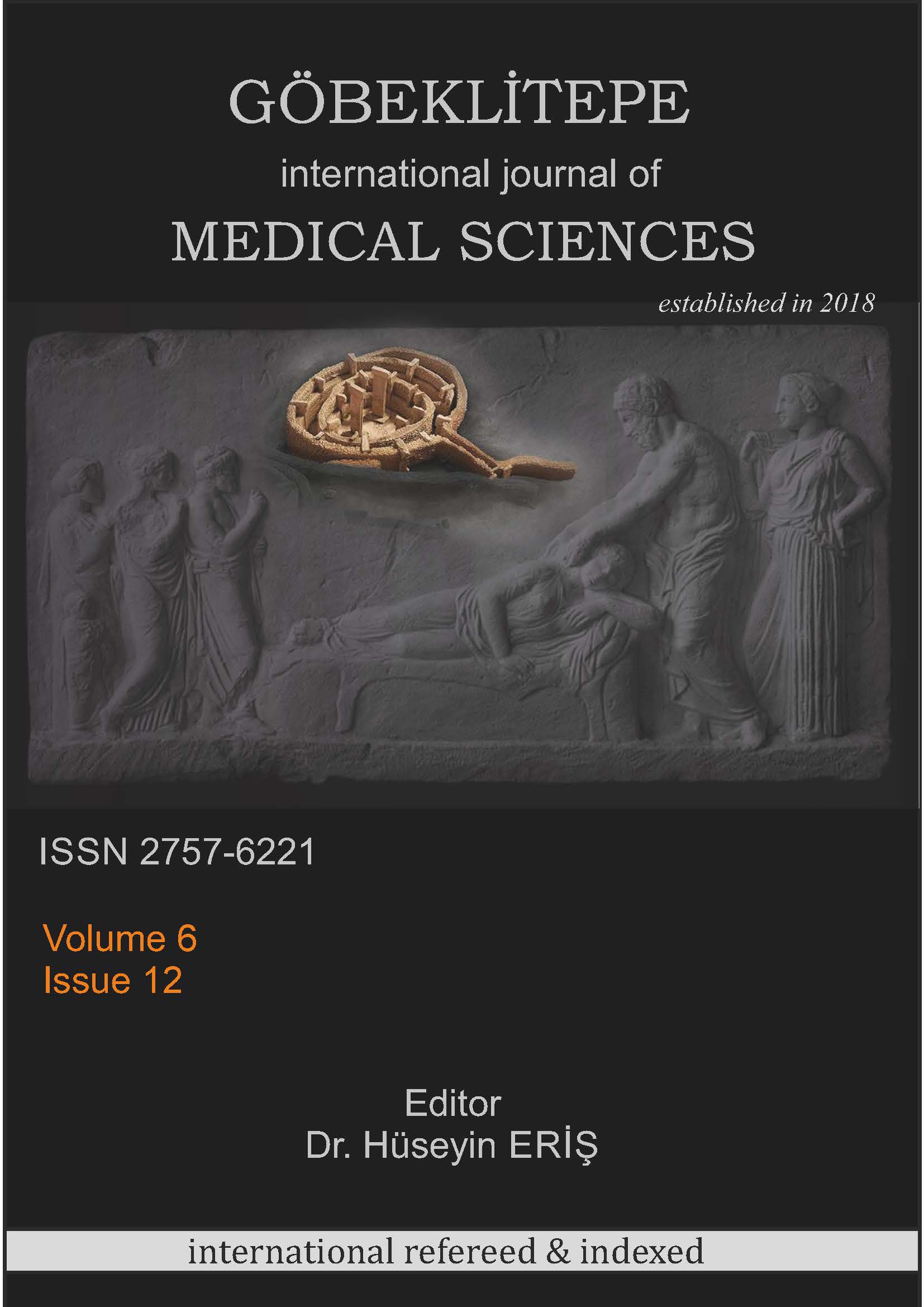THE RELATIONSHIP BETWEEN CHILD LIKING STATUS AND EMPATHIC TENDENCY OF NURSING STUDENTS
DOI:
https://doi.org/10.55433/gsbd/174Keywords:
Liking Child, Empathic Tendency, Nursing StudentsAbstract
This study was carried out to determine the relationship between nursing students' empathic tendencies and their status of liking child. This study, which was carried out in a descriptive and cross sectional type, conducted with 136 third year nursing students who were studying at the Faculty of Nursing of a state university in Turkey in the spring semester of the 2021-2022 academic year, who took the course of child health and diseases nursing and agreed to participate in the study. Data were collected online via Google Forms using the “Personal Information Form, Empathic Tendency Scale, and Barnett Liking of Children Scale”. A positive, significant relationship was found between nursing students’ Empathic Tendency Scale score average and Barnett Liking of Children Scale score average (p < 0.001). In this study, it was determined that as the levels of child liking of nursing students increased, the levels of empathic tendency also increased.
References
Çavuşoğlu H. Çocuk sağlığı hemşireliği. Genişletilmiş 11. Baskı. Ankara: Sistem Ofset Basımevi; 2013.
Hockenberry MJ, Wilson D, 2011. Wong’s nursing care of infants and children. Ninth edition. America: Elsevier Mosby; 2011.
Akdoğan D, Uysal G. Determining pediatric nurses’ attitudes and behaviors towards nurse-patient ınteraction and liking of children level. J Educ Res Nurs. 2021;18(3):282–289.
Üstüner Top F. Pediatri hemşirelik öğrencilerin çocuk sevme düzeyleri ile duygusal emek davranışları, uygulama performansları arasındaki ilişki. GÜSBD. 2021;10(4): 809–818.
Duyan V, Gelbal S. Barnett çocuk sevme ölçeği’ni Türkçeye uyarlama çalışması. Eğitim ve Bilim Dergisi. 2008;33(148):40–48.
Ardahan Akgül E, Karakul A, Doğan P, Büyükkoçak A. Hemşirelik öğrencilerinin çocuk sevme durumları ile akademik başarıları arasındaki ilişki. İKÇÜSBFD. 2021;6(1):127–131.
Altay N, Kılıçarslan Törüner E. Öğrenci hemşirelerin klinik stres yaşama ve çocuk sevme durumlarının belirlenmesi. DEUHYO ED. 2014;7(3);166–170.
Baran G, Yılmaz G. Çocuk sağlığı ve hastalıkları hemşireliği dersinin uygulamasına çıkan hemşirelik öğrencilerinin çocuk sevme durumları ve etkileyen faktörlerin incelenmesi. JAREN. 2019;5(2):91–96.
Bektaş M, Ayar D, Bektaş İ, Selekoğlu Y, Kudubeş AA, Altan SS. Hemşirelik öğrencilerinin çocuk sevme durumlarını etkileyen faktörlerin belirlenmesi. J Pediatr Res. 2015;2(1):37–41.
Günel E, Avcı Ö. Hemşirelik öğrencilerinin çocuk sevme ile empatik eğilim durumları ve aralarındaki ilişkinin belirlenmesi. Ordu University J Nurs Stud. 2021;4(2):219–231.
Yılmaz D, Akay B. Hemşirelik öğrencilerinin çocuk sevme durumları ile iletişim becerileri arasındaki ilişki. SBÜ Hemşirelik Dergisi. 2022;4(2),53–60.
Eren HK, Gürhan N. Determination of the relationship between the beliefs of nursing students toward mental illnesses and their empathic tendency levels. Perspect Psychiatr Care. 2021;57(3):1034–1040.
Petrucci C, La Cerra C, Aloisio F, Montanari P, Lancia L. Empathy in health professional students: A comparative cross-sectional study. Nurse Educ Today. 2016;41:1–5.
Park, ES, Suk MH, Jung KS. A study on the empathy of pediatric nurses. Korean J Child Health Nurs. 1997;3(2):142–153.
Jia-Ru J, Yan-Xue Z, Wen-Nv H. Empathy ability of nursing students: A systematic review and meta-analysis. Medicine (Baltimore). 2022;101(32):e30017.
Ding X, Wang L, Sun J, Li DY, Zheng BY, He SW, Zhu LH, Latour JM. Effectiveness of empathy clinical education for children's nursing students: A quasi-experimental study. Nurse Educ Today. 2020;85:104260.
Ahmed FR, Shalaby SA. Exploring empathy and self-efficacy in communication skills among nursing students: A cross-sectional study at two universities in the MENA region. Int J Afr Nurs Sci. 2022;17:100503.
Korkmaz Doğdu A, Aktaş K, Dursun Ergezen F, Bozkurt SA, Ergezen Y, Kol E. The empathy level and caring behaviors perceptions of nursing students: A cross-sectional and correlational study. Perspect Psychiatr Care. 2022;58(4):2653–2663.
Özdelikara A, Babur S. Hemşirelik öğrencilerinin merhamet düzeyi ve empatik eğilim ilişkisi. ACU Sağlık Bil Derg. 2020;11(2):342–349.
Pazar B, Demiralp M, Erer İ. The communication skills and the empathic tendency levels of nursing students: a cross-sectional study. Contemp Nurse. 2017;53(3):368–377.
Saka O. Araştırma evreleri II, Araştırmalarda deneklerin seçimi, örnekleme. Türkiye Acil Tıp Dergisi. 2004;4(2):81–85.
Barnett MA, Sinisi CS. The initial validation of a liking of children scale. J Pers Assess. 1990;55(1-2):161–167.
Dökmen Ü. Empatinin yeni bir modele dayanılarak ölçülmesi ve psikodrama ile ölçülmesi. Ankara Univ J Faculty Educ Sci. 1988;21(1):155–190.
Tural Büyük E, Rızalar S, Güdek Seferoğlu E, Oğuzhan H. Çocuk ve erişkin kliniklerinde çalışan hemşirelerin çocuk sevme ve çocuk yetiştirme tutumlarının incelenmesi. J Pediatr Res. 2014;1(3):130–137.
Downloads
Published
Versions
- 2024-07-02 (2)
- 2023-06-29 (1)
How to Cite
Issue
Section
License
Copyright (c) 2023 Göbeklitepe Sağlık Bilimleri Dergisi

This work is licensed under a Creative Commons Attribution 4.0 International License.




